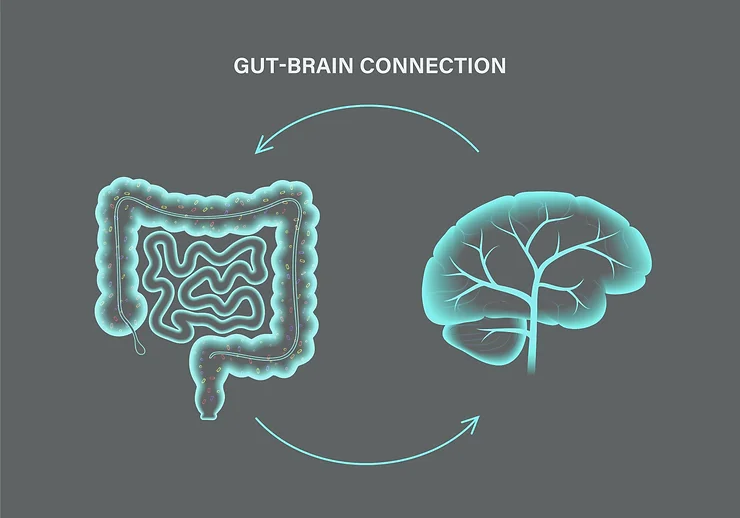Want to Improve Your Health? Start With Your Gut!
January 1, 2022

“All disease begins in the gut” is a quote from the ancient Greek physician Hippocrates made more than 2,000 years ago…and scientific research continues to support this thought.
The word “disease” is defined as a condition that prevents the body or mind from working normally (Marriam-Webster). A disease may have a label, such as cardiovascular disease, liver disease, or lung disease, but many people may be experiencing disease without an official diagnosis or label. For example, if a person frequently experiences gas, bloating, constipation, or diarrhea, then the gastrointestinal system is not working normally. What about people who have fatigue, brain fog, or frequent headaches? This is not normal and indicates that something is wrong. You should always consult your physician about any health problems you may be experiencing. However, keep in mind that your diet and lifestyle may have a significant impact on your symptoms and improving gut health may provide a benefit.
Through ongoing research, we are learning that if the gut is not functioning properly, or if its environment (the gut microbiome) is out of balance, then abnormal symptoms and health conditions arise. A person may even think their GI system is “A ok,” but imbalance in their microbiome may be showing up as symptoms elsewhere in the body, such as a skin rash, mood imbalance, poor immune system function, difficulty losing weight, low energy, or poor mental focus.
Which health conditions are associated with an imbalance in the gut microbiome?
The microbiome is made up of trillions of microorganisms, including bacteria, fungi, viruses, and parasites. Most of these microbes hang out in the large intestine, but also exist on the skin and lesser amounts in other areas of the body. While we are just beginning to learn how the microbiome affects our health, the research is clear in that the microbiome does impact our health. We know which microbes are health-promoting and how imbalance among various types of microbes may result in health problems.
The following is a list of 25 different health conditions that have been associated with an imbalance in the gut microbiome:
- Acne
- Allergy
- Antibiotic Associated Diarrhea
- Asthma
- Atherosclerosis
- Autism
- Autoimmune Diseases
- Cancers
- Cardiovascular Disease
- Celiac Disease
- Diabetes
- Eczema
- Gastric Ulcers
- Heart Failure
- HIV/AIDS
- Irritable Bowel Syndrome
- Kidney Disease
- Liver Diseases
- Malnutrition
- Mental Health Conditions
- Mood Disorders
- Obesity
- Oral Health Conditions
- Rheumatic Diseases
- Sleep Disruption
Gut health is often ignored as one of the root causes of health problems and therefore ignored as a part of the treatment plan.
While any health condition should be treated and monitored by a physician, gut health should be assessed as a potential contributor to the health problem. Otherwise, there is a risk of only treating symptoms without trying to slow or stop the progression of the disease. An analogy of this scenario would be providing a diabetic a prescription medication to control high blood sugar levels while they live a sedentary lifestyle and eat diet of highly refined carbohydrates and sugar. The prescription medication is the band aid and the lifestyle is an underlying contributing factor to the disease, which if modified, could slow or even stop disease progression.
Another example is using a prescription topical ointment to treat eczema but ignoring the underlying cause of the skin condition. Although topical treatment may be necessary to alleviate the symptoms of eczema, this is yet another band aid. Modifying dietary patterns and lifestyle factors may reduce or eliminate the triggers of the skin condition.
Where do I start with improving gut health?
There are many factors that affect gut health and the microbiome. Here is a brief list of lifestyle strategies you can start incorporating today to begin your journey towards a healthier gut environment:
· Eat a clean diet consisting of whole foods while eliminating processed packaged foods.
· Increase fiber intake from a variety of sources, such as fruits, vegetables, whole grains, beans, peas, lentils, nuts, and seeds.
· Replace high fat animal protein foods (e.g., hamburger, steak, fried chicken) with plant-based protein foods (beans, peas, legumes, tofu).
· Include probiotic foods in your diet (e.g., yogurt, kefir, fermented foods like sauerkraut).
· Include prebiotic foods in your diet (e.g., onions, garlic, artichokes, chia seeds, flax seeds, legumes, and lentils. Fruits and vegetables are also prebiotic foods).
· Modify other lifestyle factors that may support a healthier microbiome (reduce stress, exercise daily at a moderate intensity, get adequate sleep, and spend time in nature).
Improving gut health requires a multi-faceted approach. If you need assistance in developing a personalized plan that fits your lifestyle and health concerns, consult a Registered Dietitian Nutritionist who specializes in digestive health problems.
Sources:
Weinstein N, Garten B, Vainer J, Minaya D, Czaja K. Managing the Microbiome: How the Gut Influences Development and Disease. Nutrients. 2020 Dec 29;13(1):74. doi: 10.3390/nu13010074. PMID: 33383647; PMCID: PMC7823600.
Cong, J., & Zhang, X. (2018). How human microbiome talks to health and disease. European Journal of Clinical Microbiology & Infectious Diseases. doi:10.1007/s10096-018-3263-1
Lynch, S. V., & Pedersen, O. (2016). The Human Intestinal Microbiome in Health and Disease. New England Journal of Medicine, 375(24), 2369–2379. doi:10.1056/nejmra1600266
Carding S, Verbeke K, Vipond DT, Corfe BM, Owen LJ. Dysbiosis of the gut microbiota in disease. Microb Ecol Health Dis. 2015 Feb 2;26:26191. doi: 10.3402/mehd.v26.26191. PMID: 25651997; PMCID: PMC4315779.
Lau WL, Vaziri ND. The Leaky Gut and Altered Microbiome in Chronic Kidney Disease. J Ren Nutr. 2017 Nov;27(6):458-461. doi: 10.1053/j.jrn.2017.02.010. PMID: 29056165.
Zhang YJ, Li S, Gan RY, Zhou T, Xu DP, Li HB. Impacts of gut bacteria on human health and diseases. Int J Mol Sci. 2015 Apr 2;16(4):7493-519. doi: 10.3390/ijms16047493. PMID: 25849657; PMCID: PMC4425030.

Lisa Kirkman is a Registered Dietitian and Functional Nutritionist who helps people move beyond treating symptoms and resolve their health challenges. Using advanced functional lab testing and evidence-based practices, Lisa and her clients team up to resolve underlying imbalances, heal the gut, and restore vibrant whole-body health.
Can’t Eat Without Bloating?




